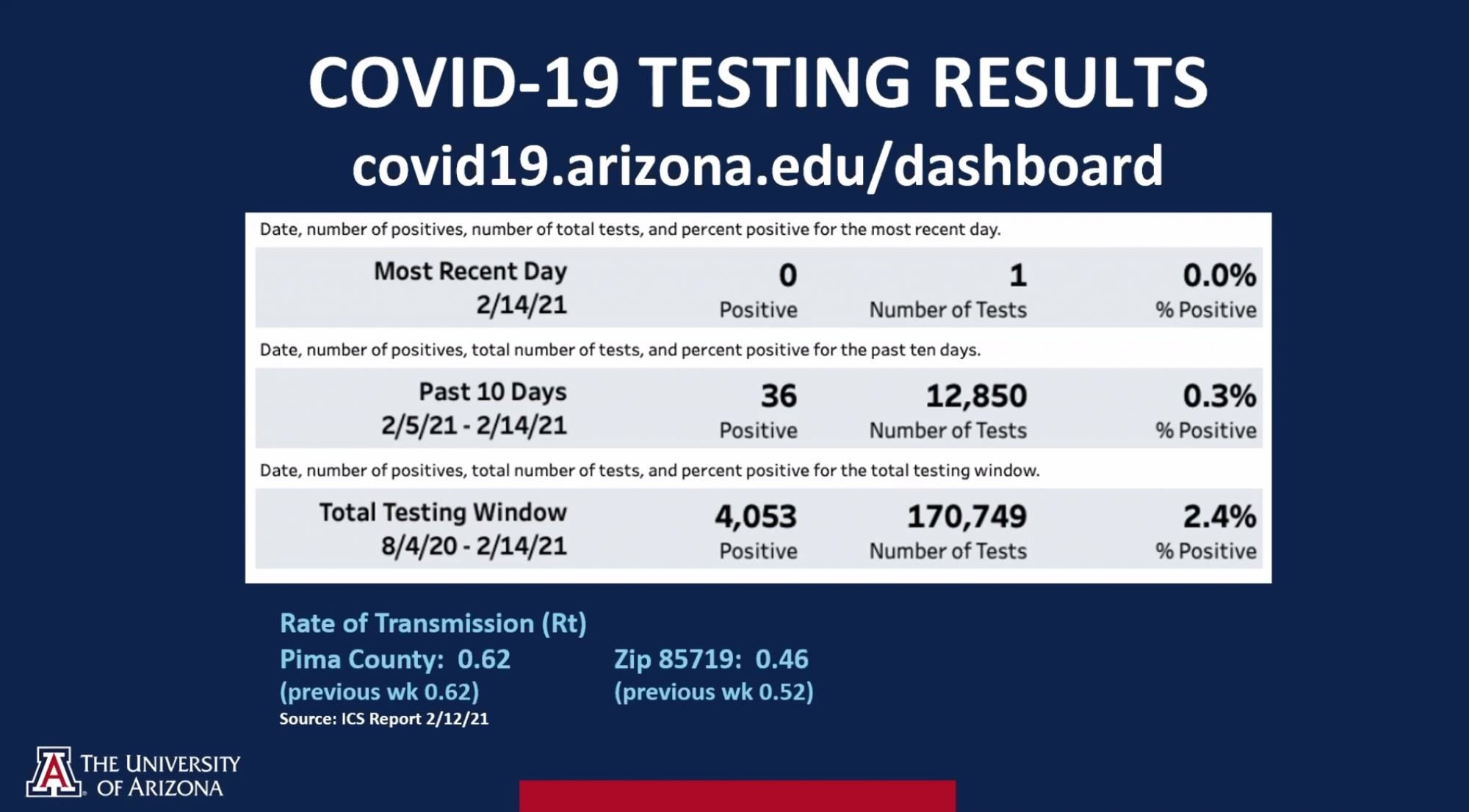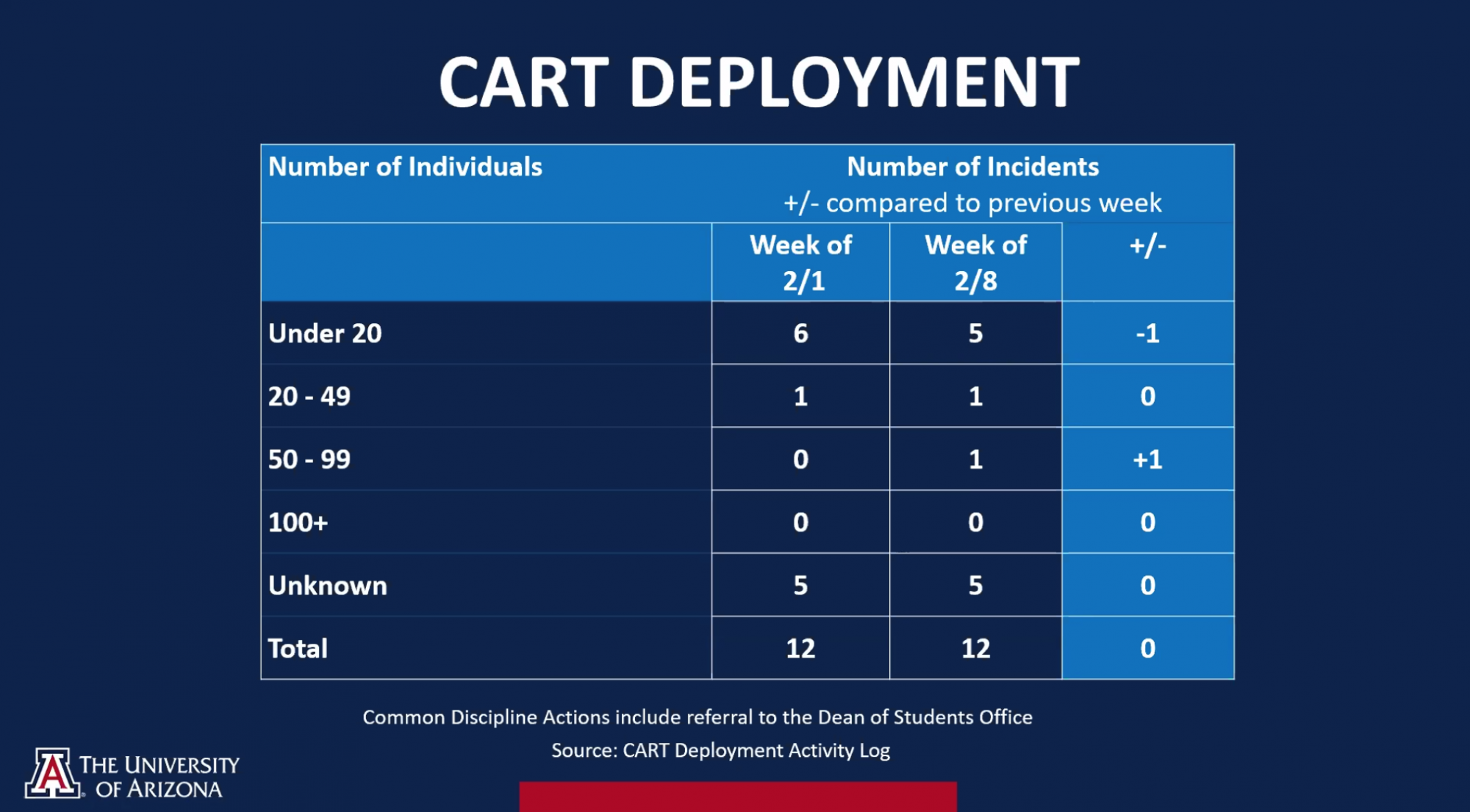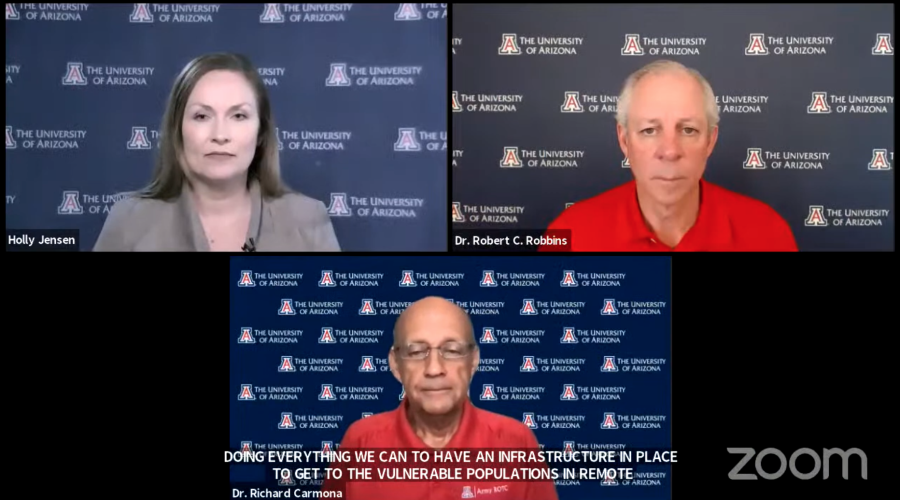The University of Arizona’s COVID-19 virtual university status update team discussed the transition to Phase 2 of reentry and the university’s new vaccination partnership with the state on Monday, Feb. 15, for the seventh briefing of the spring semester.
This week, the UA will remain in Phase 1 of the reentry protocol, which permits only “essential” classes of 50 or less to meet in person.
Next week, if public health conditions permit, the UA will advance to Phase 2 of reentry, which open up in-person instruction to classes of 50 or less students designated as in-person or flex in-person. However, UA President Dr. Robert C. Robbins still urged all university employees to work remotely whenever possible.
“In addition, I want to note that the university’s guidance on work-from-home status has not changed,” Robbins said. “We are being very cautious about the total number of people on campus. Employees who can work remotely are encouraged to continue this practice to stay at home. Faculty, staff and [Designated Campus Colleagues] will receive an email from me later this morning with additional information.”
This week, the UA will become a state vaccine point of distribution, which will give the university the resources it needs to run 24/7 and to vaccinate state residents beyond Pima County. Robbins said vaccination capacity will increase; the current rate is about 800 vaccines per day.
“With the expansion, we will add additional shifts with the possibility of eventually operating 24/7 and distributing up to 6,000 vaccine doses per day,” Robbins said. “We will continue to partner with the county. If you have already registered for a first or second appointment at the university site, those appointments will remain.”
Individuals currently eligible to receive the vaccine can begin to register for appointments under the new schedule on Feb. 16 at 9 a.m. To make an appointment, eligible individuals will need to register on the state site or call 1-844-542-8201.
RELATED: CARES Act to keep Tucson’s small businesses running
From Jan. 28 to Feb. 6, the UA conducted 12,850 COVID-19 tests which resulted in 36 positives – a positivity rate of 0.3%. The rate of COVID-19 transmission remained the same at the county level (0.46) but decreased in the university zip code area from 0.52 the previous reported week to 0.46 this past week.

“If you look at our rates of transmission, our Rt, which we report graphically pretty often, those numbers are acceptable,” said task force Director Dr. Richard Carmona. “They’re low. They change frequently. But, we’re happy that because of the continued emphasis on public health precautions on the campus, working collaboratively with the county and state, we’ve been able to keep the transmission rate down significantly.”
The Campus Area Response Team was deployed to 12 gatherings last week. Carmona said that one gathering was a Super Bowl party of over 200 people.

“There is one group that’s not on here that was a Super Bowl party that we think had about 200 people,” Carmona said. “Those are very, very, very problematic. It only takes one or two persons in that group of 200 to be able to infect others, and those then go to their homes, friends and back to school and spread it again. So that was really, really ill-advised and really should not have happened.”
The next virtual university status update will be held on Monday, Feb. 22.
Follow Kristijan Barnjak on Twitter









